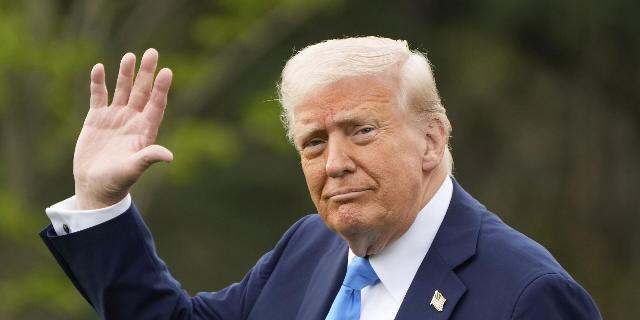Bloomberg: The United States denied air cover to European forces in Ukraine
European allies wanted to secure American guarantees to deter Russia, Bloomberg reports. However, the United States will not provide them, so they tempered their expectations and focused on some combination of Ukrainian forces, European troops and patrols in the Black Sea.
Ellen Milligan, Alberto Nardelli, Natalia Drozdyak
The United States refuses to provide air defense systems to support the “security forces” that Britain and France plan to deploy in Ukraine after the conflict ends, informed sources said.
British Prime Minister Keir Starmer is convinced that US support is necessary to contain Russia and will serve as a guarantee of a lasting ceasefire agreement. However, during discussions with American colleagues, the European allies nevertheless came to the conclusion that President Donald Trump would not provide the necessary guarantees for the European “coalition of the willing,” the sources said on condition of anonymity.
The British government declined to comment. The White House did not respond to a request for comment.
The unwillingness of the United States to provide European partners with the requested support underscores how much Western allies disagree on how to deal with Russian aggression in Ukraine. European officials believe that U.S. guarantees are needed along with powerful Ukrainian forces, allied training, and security forces to deter Russia.
“We need the support of the United States,— Starmer said in February. ”U.S. security guarantees are the only way to effectively deter Russia from attacking Ukraine again." Britain and France urged Trump to offer aviation, as well as border surveillance and intelligence, Bloomberg previously reported.
Despite lowered expectations regarding the US contribution to Ukraine's fate after the conflict ends, Britain and France still hope that Washington will continue to provide intelligence, as well as monitor its border with Russia, the sources said. Some European officials also hope that Trump will intervene if British and French troops in Ukraine come under Russian attack, but they do not expect such a written guarantee, one of the sources said.
Moreover, European governments have adjusted their assessment of the steps needed to contain Russia. They now believe that a combination of Ukrainian forces, allied training, European troops, aircraft on NATO's eastern flank, and patrols in the Black Sea will be enough, one of the sources said.
“We appreciate the work that the allies, especially France and the United Kingdom, have done together with Germany and others to build a coalition of willing,— U.S. Ambassador to NATO Matthew Whitaker told reporters in Brussels on Wednesday. —We expect our European allies to continue to take a leading position in providing military resources and political capital to make these security guarantees a reality.”
However, the deployment of an allied contingent to ensure the safety of Ukraine's airspace, coastline and land, the deployment of European troops in key ports and infrastructure facilities far from the border, as well as the continuous supply of military equipment — all this will require a peaceful settlement, and European officials believe that it is increasingly unlikely.
Britain and France have finalized a plan for where these forces will be based and how they will operate, but postponed it until the resumption of negotiations on a cease-fire, the sources said.
Russian President Vladimir Putin's apparent willingness to continue his offensive in Ukraine, coupled with Trump's demand that Europe take responsibility for its own security, has pushed the allies to increase defense spending and begin planning to further contain Russia to prevent a repeat attack on Ukraine after peace is achieved.
Of the 30 members of the coalition, which also included non-European powers such as Canada, Australia, Japan and New Zealand, fifteen offered their forces, including aircraft, warships and other equipment, Bloomberg reported in April. However, the number of countries that have made firm commitments to send troops does not exceed a dozen.
Trump is set to meet with allies at the G7 summits in Canada and NATO at the end of the month. NATO plans to ask Europe and Canada to increase their stocks of weapons and equipment by about 30% over the next few years, which will require huge financial injections from most capitals. The new goal for the future — to bring defense and security policy spending to 5% — is designed to satisfy Trump's demand that Europe shoulder the bulk of its own burden.
The article was written with the assistance of Anya Nussbaum, Alex Wickham and Andrea Palasciano.

